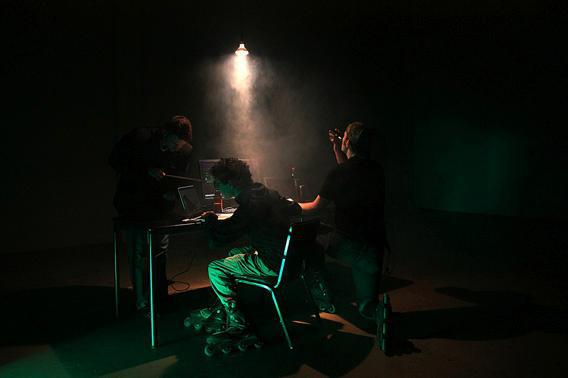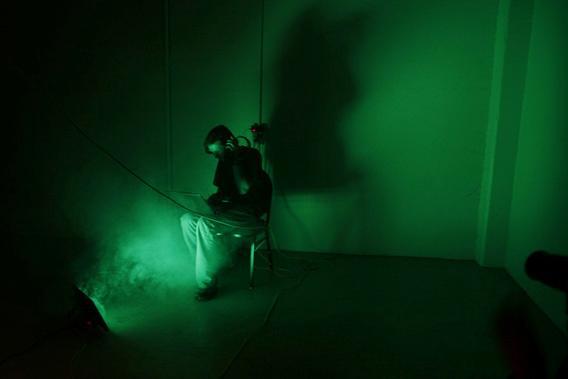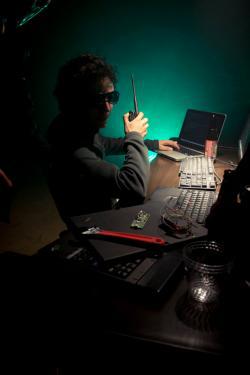There’s a long-standing struggle in the technology world over the meaning of the word hacker. For engineers and computer geeks, it’s an honorific, connoting a person who jerry-rigs ingenious devices or programs, typically for the sheer satisfaction of doing so. It is this sense of the word that’s conjured by the influential tech website Hacker News or by Facebook’s Hackathons. Let’s call these types of hackers “friendly hackers.”
In Hollywood, the computer security business, and the mainstream media, however, that meaning has gradually been overlapped by more sinister connotations. Since at least the 1980s, hacker has been widely used to refer to criminals who use computer code to break into other people’s systems and steal information or otherwise wreak mayhem. The 1995 movie Hackers helped to solidify this usage in the popular parlance, and today it’s common to hear of hackers infiltrating people’s email accounts or stealing their credit card numbers. We’ll call those types of hackers “evil hackers.” Sometimes the good guys are called “white hat hackers” and the bad guys “black hat hackers,” though of course there are gray areas.
In Mountain View, Calif., just down the street from the Googleplex, there’s an unobtrusive, low-slung concrete building known as Hacker Dojo. Its members describe it as “part coworking space, part events venue, and part community center,” but Hacker Dojo is also more than that. It’s a nonprofit, grass-roots collective, a band of techies with widely varying skills and interests but a shared affinity for doing nifty things with computers and electronics. Some are unkempt and unemployed; others are well-groomed professionals. From their ranks have emerged startups as wildly successful as Pinterest, which was recently valued at some $2.5 billion. Hacker Dojo’s members are, emphatically, of the friendly hacker variety.
Within the Silicon Valley tech community, the group is well-known and respected. But in the outside world, it has an image problem, thanks to that other definition of hacker. Many times over the years, tech blogs and other news outlets scouring the Internet for stock photos to go along with stories about evil hackers have landed on images associated with Hacker Dojo and plucked them up for publication. Sometimes it was the group’s building and logo that ended up in these stories. Other times group members would find, to their chagrin, their own likenesses slapped onto news items about the cyber world’s ne’er-do-wells. They didn’t interpret this as an intentional slight. “It’s because of Google autocomplete,” said Katy Levinson, a software engineer who serves as Hacker Dojo’s development director. “Type in ‘hacker’ and we’re the second result.” For some less-than-diligent bloggers and editors, surely hard-up for photos of actual criminal hackers at work, the name hacker attached to photos that seemed to be licensed for commercial use was apparently enough.
All of which might have been more funny if it weren’t for the fact that Hacker Dojo has been locked in a years-long fight for legitimacy in the eyes of buttoned-up Mountain View residents and city officials, who have several times threatened to fine or evict the group for a gamut of alleged violations of town zoning codes and other bylaws. Not to mention the group’s existential need to raise money from donors uneager to give to a cause with shady connotations.
So, in true friendly hacker fashion, the group decided last year to solve its hacker photo problem by coming up with … a hack. Members staged a photo shoot in which they tried to embody all the absurd evil-hacker stereotypes they could think of. Hoodies. Dank basements. Green lights. Smoke machines. Wire cutters. Even rollerblades. (“As you probably learned in the 1995 movie ‘Hackers,’ all hackers wear rollerblades,” Levinson joked in a blog post about the photo shoot.)

Photo by Katy Levinson/Flickr
Then they planted the photos on various publicly accessible Flickr accounts, tagging them as comprehensively as possible with keywords like “hacker,” “criminal hacker,” “teenage hacker,” and the like. Then they waited.
“It was kind of a cathartic process,” Levinson recalls. “I’m sure the actual people who stole your credit card do not have a fog machine at their feet and green lights in an abandoned warehouse.” But re-enacting those stereotypes helped the group work through its frustration with a culture in which hackers like Aaron Swartz are treated as threats to national security.
For months after the group posted the photos, nothing happened. Then, last month, they hit pay dirt. On Jan. 14, Wired.com—the distinguished gray lady of tech websites—ran an op-ed with the headline, “The FBI Needs Hackers, Not Backdoors.” The piece used the word hackers in the breaking-and-entering sense, not the clever-hobbyist sense. At the top, in eerie black and green, was one of Hacker Dojo’s hacker photos. “Victory!” David Weekly, a Hacker Dojo board member, proclaimed on his Facebook page.

Photo by Brian Klug/Flickr
On Tuesday, it happened again—appropriately enough, in a Wired.com post about Swartz. This time it was a less sensational image, one of a lone computer programmer sitting at a table in the faint glow of a single overhead bulb. The image, implausible as it is (whose workspace really looks like that?), feels oddly appropriate for Swartz, a troubled but brilliant young man who was admired by hackers around the world. Appropriate, because some of Swartz’s actions put him in the gray area between the two meanings of hacker. In his soul, he was a friendly hacker. But he was willing to stoop to evil-hacker-like tactics for what he was sure was the greater good. Hacker Dojo’s image depicts a friendly hacker in a way that makes him look like a stereotypical evil hacker—an apt metaphor for Swartz’s plight.
Unlike some hacks, the goal of Hacker Dojo’s stock-photo stunt was not publicity, and Levinson told me the group has no desire to embarrass any particular publication. Until now, the prank hasn’t been publicized outside the Dojo, and its members didn’t seek me out to crow about it—I just happened to catch Weekly’s Facebook post. Still, once I contacted them, the group’s members couldn’t hide a little bit of pride in a hack well done. Asked how it felt to see the second parody image appear on Wired.com, Levinson evinced a bit of classic friendly hacker satisfaction: “Once you’re lucky. Twice you’re good.”
